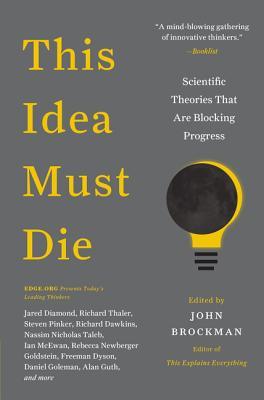Laura Betzig: Culture
What if the 100,000-odd year-old evidence of human social life—from the arrowheads in South Africa, to the Venus figurines at Dordogne—is the effect of nothing, more or less, but our efforts to become parents? What if the 10,000-odd year-old record of civilization—from the tax accounts at temples in the Near East, to the inscription on a bronze statue in New York Harbor—is the product of nothing, more or less, but our struggle for genetic representation in future generations?
[...]
And the Republic of St Peter took over in the depopulated west. From Clovis' kingdom in Paris, to Charlemagne's empire at Aachen, to the Holy Roman conglomerate east of the Rhine, cooperatively breeding aristocrats—like cooperatively breeding birds—turned some of their sons and daughters into celibates, but raised others to become husbands and wives. Abbesses, abbots and bishops administered estates and conscripted troops, or instructed their nieces and nephews in monastery schools; and their older brothers begot heirs to their enormous castles, or covered the countryside with bastards. Then the Crusaders took ships to the Near East, and Columbus led the first waves of immigrants across the Atlantic.
Over the next few centuries, hordes of poor, huddled masses from across the Old World found places to breathe free on the American Continents. Millions of solitary slaves and serfs, and thousands of unmarried priests and monks—like helper birds, or social insect workers, whose habitats had opened up—walked away from their lords and masters, and out of their cathedrals and abbeys.
[...]
...it's seemed to me that CULTURE is a 7-letter word for GOD. Good people—some of the best, and intelligent people—some of the smartest, have found meaning in religion: they have faith that something supernatural guides what we do. Other good, intelligent people have found meaning in culture: they believe that something superzoological shapes the course of human events. Their voices are often beautiful; and it's wonderful to be part of a chorus. But in the end, I don't get it. For me, the laws that apply to animals apply to us.
And in that view of life, there is grandeur enough.
Notes:
Folksonomies: atheism secularism cuture
Taxonomies:
/religion and spirituality (0.582084)
/art and entertainment/music/singing (0.573353)
/automotive and vehicles/cars/car culture (0.527074)
Keywords:
10,000-odd year-old record (0.937342 (negative:-0.275110)), 100,000-odd year-old evidence (0.936922 (neutral:0.000000)), New York Harbor—is (0.892299 (negative:-0.395574)), monks—like helper birds (0.844459 (neutral:0.000000)), social insect workers (0.834558 (negative:-0.278177)), Venus figurines (0.722610 (negative:-0.357190)), South Africa (0.717483 (neutral:0.000000)), bronze statue (0.715918 (negative:-0.395574)), Laura Betzig (0.714834 (neutral:0.000000)), tax accounts (0.714213 (negative:-0.275110)), future generations (0.712631 (negative:-0.509650)), genetic representation (0.712280 (negative:-0.509649)), enormous castles (0.702903 (neutral:0.000000)), unmarried priests (0.700408 (neutral:0.000000)), St Peter (0.698565 (negative:-0.324989)), solitary slaves (0.697672 (negative:-0.410439)), Holy Roman (0.696010 (neutral:0.000000)), American Continents (0.690819 (neutral:0.000000)), monastery schools (0.687670 (neutral:0.000000)), older brothers (0.687083 (neutral:0.000000)), Old World (0.686673 (neutral:0.000000)), 7-letter word (0.681641 (positive:0.359378)), supernatural guides (0.680465 (positive:0.365380)), intelligent people—some (0.679981 (positive:0.673117)), intelligent people (0.678065 (positive:0.385021)), Good people—some (0.677137 (positive:0.734428)), human events (0.674020 (positive:0.312414)), superzoological shapes (0.672723 (positive:0.312414)), east (0.594828 (negative:-0.275110)), culture (0.582798 (positive:0.372199))
Entities:
Laura Betzig:Person (0.777158 (neutral:0.000000)), New York:City (0.721056 (negative:-0.395574)), Republic of St Peter:Organization (0.719986 (negative:-0.324989)), South Africa:Country (0.716441 (neutral:0.000000)), Charlemagne:Person (0.701760 (neutral:0.000000)), Aachen:City (0.694729 (neutral:0.000000)), Crusaders:Organization (0.693815 (neutral:0.000000)), Clovis:StateOrCounty (0.692899 (neutral:0.000000)), Atlantic:GeographicFeature (0.669365 (negative:-0.212678)), Paris:City (0.657744 (neutral:0.000000)), Columbus:City (0.617216 (negative:-0.212678))
Concepts:
Holy Roman Empire (0.987884): dbpedia | freebase | yago
Bishop (0.956680): dbpedia | freebase
Rhine (0.745973): website | dbpedia | freebase | opencyc | yago
Continent (0.695255): dbpedia | freebase | opencyc
Slavery (0.673375): dbpedia | freebase | opencyc
Germany (0.643859): website | dbpedia | ciaFactbook | freebase | opencyc | yago
Figurine (0.582520): dbpedia | freebase | opencyc
Intelligence (0.579242): dbpedia | freebase





